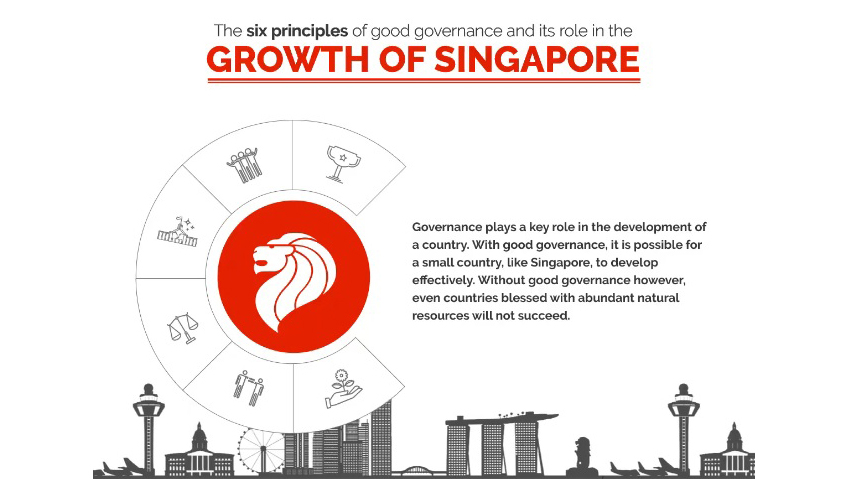
Governance plays a key role in the development and prosperity for the future of a country. With good governance in the state, it is possible for a small, resource-limited and young country, like Singapore, to develop effectively and enjoy prosperity. Without good governance for the present and future society and economy, however, even countries endowed with abundant natural resources will not succeed. As Singapore looks forward to celebrating her 51st anniversary of nationhood on 9 August 2016, we decided to revisit the work of Professor Tommy Koh, Ambassador at Large, Ministry of Foreign Affairs of Singapore and IPS Special Adviser on the six principles of good governance and its role in the growth of Singapore.
Principle 1: Meritocracy
Every child in Singapore is entitled to a formal education. This offers every Singaporean a chance to advance up the social ladder, where you are judged by your capabilities, and not your race, religion or background.
Principle 2: Racial and religious harmony
In Singapore, racial and religious harmony is viewed as more important than the freedom of speech and freedom of the press. The Maintenance of Religious Harmony Act prohibits all forms of attacks on any religion. This is critical to building a multi-ethnic society in Singapore, where various forms of religions exist.
Principle 3: A clean government
Singapore adopts a zero-tolerance policy towards the elimination of corruption within its government and civil service. Ministers and senior civil servants have been jailed for such offences in the past.
Principle 4: Rule of law
According to a World Bank study, the rule of law ranks top among the factors influencing a country’s development. With a sound justice system in place based on good governance, everybody in Singapore is treated fair and equal. This gives confidence to businessmen and investors, who know their money is placed in a protected environment.
Principle 5: Inclusiveness
Singapore views social equity as crucial in its growth strategy. The government subsidises education, housing, healthcare and public transportation for all its citizens, even though it refuses to be branded as a welfare state. The heart of Singapore’s social-economic system is made from a unique blend of capitalism and socialism practices.
Principle 6: Care for the environment
Since he came to power, former Prime Minister Lee Kuan Yew has championed to clean up the river and streets of Singapore. He believed a clean environment is critical to the development of the country and has even turned down investments which would pollute the environment.
For more insights, read Professor Koh's full lecture on “The Principles of Good Governance”
Slideshow Video: https://www.facebook.com/nuslkyspp/videos/1182666651773229/